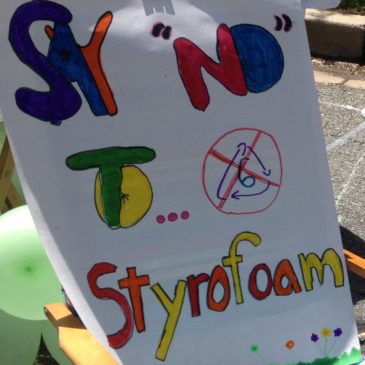Community Broadband News Around the Nation:
Colorado
Community and candidates react to Grand Junction election results by Lindsey Pallares, KJCT-TV
“It’s an indication that people really want to see us have better fiber in this city so we’ll step back as a city council and see what are next steps to go forward,” says Mayor Phyllis Norris.
Connecticut
Connectict is taking steps to become the nation’s first gigabit state. You can also check out our Community Broadband Bits episode 118 for more on how they’re doing it.
At Least One State has a (Fiber) Backbone by Susan Crawford, Backchannel
Who’s on track to get citizens high-speed Internet? Hint: it’s the only state with the word “connect” in its name.
How Connecticut set itself up to be the first gigabit state by Colin Neagle, Network World
Georgia
PTC to get into fiber-optic broadband business? by Ben Nelms, The Citizen
Maine
New group forms to support faster Internet in Maine by Darren Fishell, BDN Staff
Dickstein said the group has been organizing for several months in advance of the legislative session that includes about 35 bills dealing with broadband expansion in the state. Learn More: mainebroadbandcoalition.org
Massachusetts
On the Grid: last-mile LeverettNet Connections being made to households by Paul Franz, The Recorder
The lighting of LeverettNet marks the first “last-mile” network to connect to the Massachusetts Broadband Institute “middle-mile.” The fiber-optic network design provides upload and download speeds of 1 gigabit per second.
Shutesbury, Wendell first Wired West towns to reach subscription threshold for high-speed Internet by Mary Serreze, The Republican
A Decade Later, Mass. Broadband Coverage Gaps Persist by Karl Bode, DSL Reports
It’s time for western Mass. to get up to broadband speed by B.J. Roche, The Recorder
Webb’s commute is a common ritual — people regularly drive to a library or town hall parking lot for a high-speed Internet connection. At night, you sometimes can see us sitting in the passenger seat side of our cars, uploading a work project or downloading a software update, faces lit by the glow of a warm laptop. It’s not just a question of which movie to stream on Friday night, but whether there’s enough satellite bandwidth left this month to watch it.
Minnesota
‘Rural agenda’ without broadband is rural sham by Aaron Brown, Minnesota Brown
This last year has seen a small but encouraging spurt of state investment into rural broadband on the Iron Range, but it was just the starting bell, not the final buzzer on what needs to happen
… I understand that Republicans don’t trust government. That does not excuse action to eliminate efforts to expand broadband without new ideas to replace them. I wrote earlier today about the perils awaiting places like the Iron Range without broadband and economic diversification. The same is true throughout rural Minnesota. As was true 100 years ago, we need leadership and respect, not promises and exploitation.
US Internet’s fiber spreads across south Minneapolis by Adam Belz, Star Tribune
“There are good reasons Comcast should be more afraid of USI,” [Chris] Mitchell said. “Comcast competes with CenturyLink around the country. The cable companies have a history of duopoly — of a soft competition rather than hard competition because they recognize that a rough and tumble competition between the two would hurt each more than each is likely to gain.”
The cable war is coming to St. Paul by Peter Callaghan, MinnPost
CenturyLink aims to bring more competition to Twin Cities cable-TV market by Shannon Prather, Star Tribune
FCC fines CenturyLink $16M over multistate 911 outage by Riham Feshir, MPR News
New Jersey
Village-wide wifi getting close look by Charles A. Peterson, Newark Advocate
“From the standpoint of a community that basically is a knowledge-based community, it would be nice if we had a little faster Internet service available,” Wilken said. “When a community earns its bread through knowledge, it’s kind of nice to have that kind of high-speed stuff.”
Oregon
Google who? Oregon cities want their own fiber networks by Mike Rogoway, The Oregonian/OregonLive
“We realized we’re too small for Google to come to us,” said SandyNet general manager Joe Knapp.
Budget plans called for signing up a third of the city initially, growing to 50 percent over several years. But Knapp said well over 50 percent of the homes in the city have already come aboard.
Oregon cities look to bypass Google Fiber by building own 1 Gbps networks by Sean Buckley
“They may be a benign company but they would still be a monopoly,” said Lake Oswego city manager Scott Lazenby in an article in The Oregonian. “And monopolies charge what they can.”
Vermont
Broadband bills take a number in house commerce by Erin Mansfield, VTDigger
“We’re just a huge, underserved region, but we have a lot of kids who can’t do their homework,” said CJ Stumpf of East Randolph. Stumpf said a child in her town was issued an iPad at school and used it as a paperweight at home because he had no Internet access.
Washington
CenturyLink Apologizes for Misleading Customer About Its Gigabit Internet Service by Ansel Herz , the Stranger
Google Fiber
Google Fiber Is More Important Than You May Think by Jamal Carnette, Motley Fool
Google is forcing big broadband providers to boost speeds by Timothy B. Lee, Vox
Other Broadband News
CLIC Sets Muni Broadband Protection Event: Wheeler to Speak at Broadband Communities Conference by John Eggerton, MultiCHannel
US broadband providers wake up to the need for speed by David Crow, Financial Times New York
… Read More








